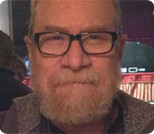What the Market Economy Really Is
What is a market economy? We often talk about it as though it were a thing, perhaps a machine or a vehicle. Business reporters say it heats up or cools down. Sometimes it even gets stuck in a ditch. But it’s not a thing subject to heating or cooling or running off a road. As Austrian-school economist Ludwig von Mises taught Israel Kirzner (another Austrian-school economist) when Kirzner first began to study economics, the market is a process. But what does that mean?
Let’s get at this by a roundabout route.
In “The Concept of Mind,” philosopher Gilbert Ryle wrote:
A foreigner visiting Oxford or Cambridge for the first time is shown a number of colleges, libraries, playing fields, museums, scientific departments and administrative offices. He then asks “But where is the University? I have seen where the members of the Colleges live, where the Registrar works, where the scientists experiment and the rest. But I have not yet seen the University in which reside and work the members of your University.” It has then to be explained to him that the University is not another collateral institution, some ulterior counterpart to the colleges, laboratories and offices which he has seen. The University is just the way in which all that he has already seen is organized. When they are seen and when their co-ordination is understood, the University has been seen. His mistake lay in his innocent assumption that it was correct to speak of Christ Church, the Bodleian Library, the Ashmolean Museum and the University, to speak, that is, as if “the University” stood for an extra member of the class of which these other units are members. He was mistakenly allocating the University to the same category as that to which the other institutions belong.
Ryle called such a slip a “category-mistake,” and it is relevant to thinking about economics because people commit the same mistake whenever they talk about “the economy” or “the market.” Like the university, there is no such thing, if by thing we mean an object or place. Rather, like the university, an economy is, paraphrasing Ryle, just the way so much of what we see every day is organized. The economy, or market, does not exist apart from people interacting.
We often talk of the economy doing things, such as allocating resources or rewarding entrepreneurs. Government officials, pundits, and even economists sometimes speak of the economy as though it were a vehicle or machine. But those are metaphors. A metaphor, Aristotle said, “consists in giving a thing a name that belongs to something else.” Resources are indeed allocated, and entrepreneurs are indeed rewarded, but the economy is not responsible for the doing. And economies don’t overheat or cool down or go into a ditch. Economies are just people cooperating by exchanging things they own. If we can’t get beyond the metaphors, we can’t understand what is going on.
At some level most people probably apprehend the metaphorical nature of these statements, but it’s easy to forget and to fall into literalizing the metaphors — for example, by reifying the economy and ascribing actions to it. Literalizing a metaphor can get you into trouble, as we shall see. Not that we can avoid metaphors. “We must use metaphors,” C.S. Lewis wrote. “The feelings and imagination need that support. The great thing … is to keep the intellect free from them: to remember that they are metaphors.” To which Thomas Szasz, the libertarian physician, commented, “Obviously, doing so cannot be easy, or else wise men would not have felt it necessary — in every age and every language — to keep reminding us of the duty of this remembrance.”
F.A. Hayek, a Nobel laureate and leading light of the Austrian school of economics, understood this. In volume 2 of “Law Legislation, and Liberty,” Hayek emphasized that what is normally called an economy has no ends, or purposes: in the original sense of the word economy — which meant a household — “a given set of means is allocated in accordance with a unitary plan among competing ends according to their importance.” But “the market order serves no such single order of ends.… [I]t serves the multiplicity of separate and incommensurable ends of all its separate members.” Thus the market does not maximize value, because that would imply a single scale of values. In the market each person has their own scale of values. Hayek preferred the word catallaxy, from the Greek verb “to exchange,” to economy. A catallaxy consists of many economies.
What is the harm in reifying the economy? The potential for harm is great. If we generally think of the economy as a machine, we will be vulnerable to appeals from politicians who aspire to fine-tune the machine, say, by injecting or withdrawing printing-press money as though it were a lubricant. That is how they justify so much government intervention. But if we remember that “the economy” is only people cooperating — exchanging things for mutual advantage — we may be less likely to fall for interventionist schemes.
Politicians can’t control markets. They can only control other people. If we speak and think plainly, those schemes will sound much less benign.









